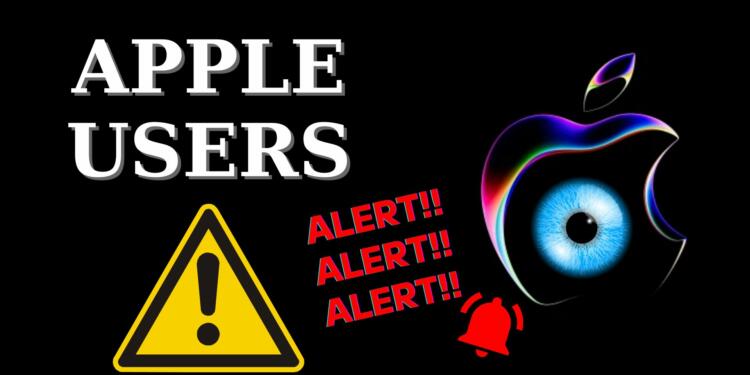In recent developments concerning cybersecurity in India, the Computer Emergency Response Team-India (CERT-In) has launched an investigation into the alarming threat notifications sent by Apple to numerous individuals. These notifications, purportedly warning recipients of potential state-sponsored attacks targeting their iPhones, have sparked widespread concern and scrutiny.
Apple’s Warning Notifications
At the heart of the matter lies a series of messages sent by Apple to various individuals, including notable opposition figures and journalists. The notifications, bearing the title “ALERT: State-sponsored attackers may be targeting your iPhone,” have raised significant alarm within the affected communities. The warnings, while not explicitly attributing the threats to any specific state-sponsored entity, highlight the possibility of remote compromise of sensitive data, communications, and device functionalities.
Among the recipients of these notifications are prominent figures such as Mahua Moitra, Raghav Chadha, Shashi Tharoor, Siddharth Varadarajan, Sriram Karri, and Ravi Nair. Notably, many of these individuals are known for their vocal criticism of the current Indian government led by Prime Minister Narendra Modi.
Apple’s Response and Government Scrutiny
In response to mounting concerns, Apple issued a statement clarifying that it does not directly attribute the threat notifications to any particular state-sponsored attacker. However, the ambiguity surrounding the origin and specificity of these threats has failed to allay fears among the recipients and the broader public.
Government officials, including IT Minister Ashwini Vaishnaw and Minister of State for Electronics and IT Rajeev Chandrasekhar, have raised pertinent questions regarding the nature of these notifications and Apple’s device security standards. Vaishnaw expressed reservations about the vagueness of the warnings, while Chandrasekhar questioned the rationale behind the widespread dissemination of these alerts across 150 countries.
Also Read: Meta’s Pledge to Combat Misinformation Ahead of India’s General Elections
The Pegasus Project
The backdrop of this incident is deeply intertwined with the revelations of the 2021 Pegasus Project, which exposed the widespread use of Israeli spyware to target individuals, including politicians, journalists, and activists in India. The expose triggered widespread outrage and raised serious concerns about privacy violations and government surveillance practices.
Despite mounting allegations and calls for accountability, the Union government’s cooperation with investigations into the Pegasus scandal has been under scrutiny. The Supreme Court-appointed committee tasked with investigating the matter faced significant obstacles due to a lack of government cooperation, hampering efforts to unearth conclusive evidence of spyware usage.
Implications
As the investigation by CERT-In unfolds, stakeholders are eagerly awaiting clarifications and concrete actions from both Apple and the government. The outcome of this probe will not only shed light on the veracity of the threat notifications but also underscore the importance of robust cybersecurity measures and transparent governance mechanisms.
In an era defined by digital vulnerabilities and growing concerns over surveillance, the need for accountability, transparency, and safeguarding of privacy rights has never been more urgent. As the Apple threat notification issue continues to evolve, it serves as a stark reminder of the complex interplay between cybersecurity, individual privacy, and democratic principles in the digital age. Moving forward, addressing these challenges will require concerted efforts from all stakeholders to uphold the integrity of digital ecosystems and protect the rights of individuals against potential threats and intrusions.
Also Read: “Sephora Kids”: Kids Obsessed with Skincare, Cute or Concerning?




























